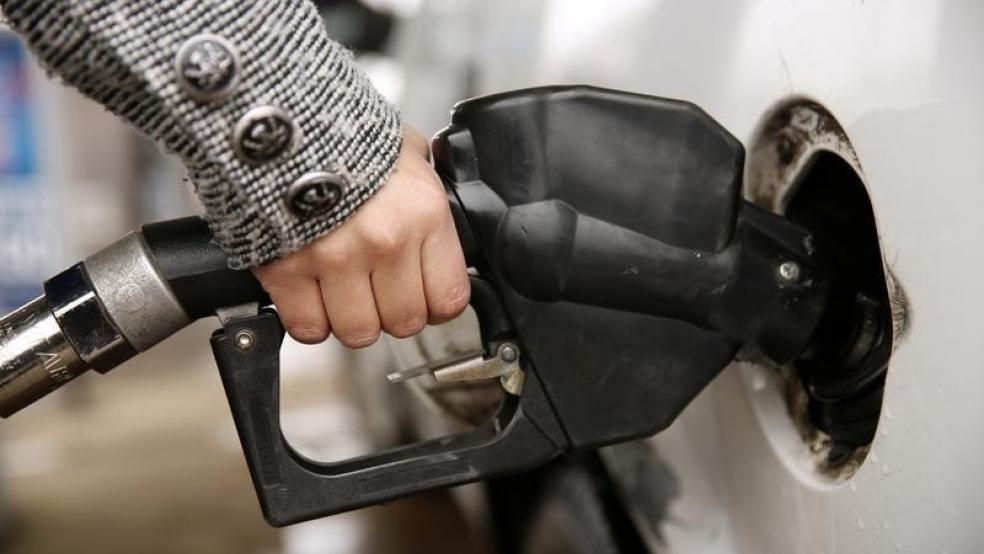The Biden administration is looking for ways to address high gasoline prices, which are inflicting economic pain on households all over the country. Ideas that are being discussed include suspending the federal gas tax, releasing supplies from the national oil reserve and providing additional incentives for energy producers, Jeff Stein of The Washington Post reports.
Some Democratic lawmakers are also pushing for a “windfall tax” on large energy companies. On Friday, Sen. Bernie Sanders (I-VT) took the idea a step further, calling for a 95% tax on excess profits at all large oil and gas companies, many of which have seen a major boost to their profits during the pandemic. The tax would be applied to companies that have more than $500 million in revenue, with the level of excess profits determined by average earnings in the five years before the Covid-19 crisis.
“The time right now is to tell the 1% and the CEOs of this country that this economy can’t just do well for them,” Sanders told the Post. “They cannot continue to raise prices.”
Many economists, though, worry that a windfall tax, whether on energy companies or applied more broadly, would exacerbate existing supply problems by reducing corporate investment. “You would think drillers will be more hesitant to invest if they think they’ll be taxed for doing so,” economic Adam Ozimek of the Economic Innovation Group said. “We want to encourage investment, not discourage it.”
But some think that a punitive tax on windfall taxes could be effective in reducing big price hikes. “If you had excess profits tax, firms would say, ‘I could raise prices a ton, but those profits will be taxed away, so I’ll just keep prices low,’” economist Josh Bivens of the Economic Policy Institute said.
Lawmakers eye checks: A trio of Democratic representatives — Reps. Mike Thompson (CA), John Larson (CT) and Lauren Underwood (IL) — released a proposal to provide direct payments to Americans to help defray the cost of fuel. Under their plan, households under certain income limits ($80,000 per year for single filers and $160,000 for joint filers) would receive up to $100 per month, plus another $100 for each dependent, as long as the national average price of gas exceeds $4 per gallon.
A separate plan from Rep. Ro Khanna (D-CA) and Sen. Sheldon Whitehouse (D-RI) would provide rebates to consumers on a quarterly basis, funded by a tax on large oil producers. Companies that produce or import at least 300,000 barrels of oil per day would pay a 50% per barrel tax on revenues that exceed a pre-pandemic average. The lawmakers estimate that the tax would produce about $45 billion a year if oil prices average $120 a barrel — enough to provide about $360 in rebates per year to joint filers earning less than $150,000.
And California Gov. Gavin Newsom (D) this week announced that he wants to provide state residents with direct payments of $400 per vehicle, up to a limit of two vehicles. If California lawmakers approve the plan, checks could arrive as soon as July.
The bottom line: There’s a lot of talk about bringing down fuel prices and some interesting proposals for providing relief for American consumers, but it’s not clear that there is enough political will to do so, and it’s probably best not to count on getting a rebate check until any such money is safely deposited in your bank account.




